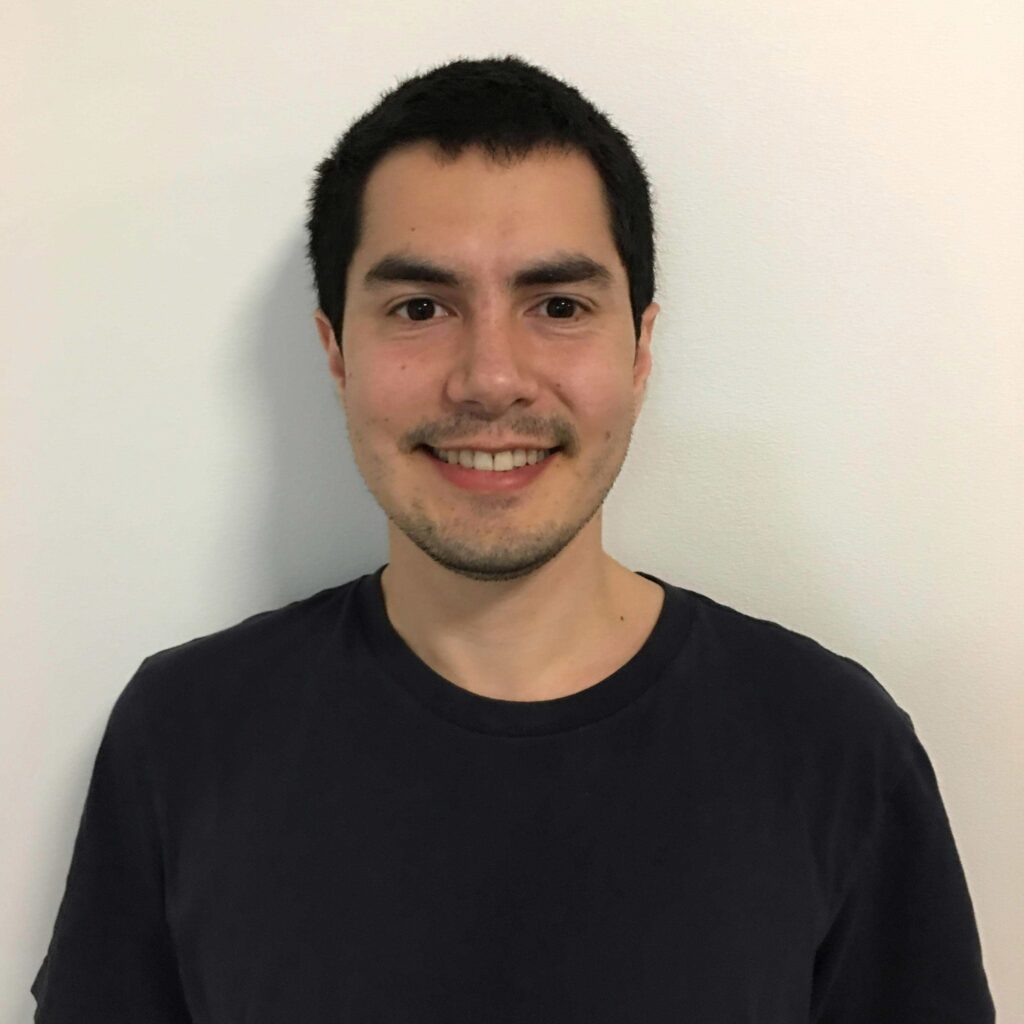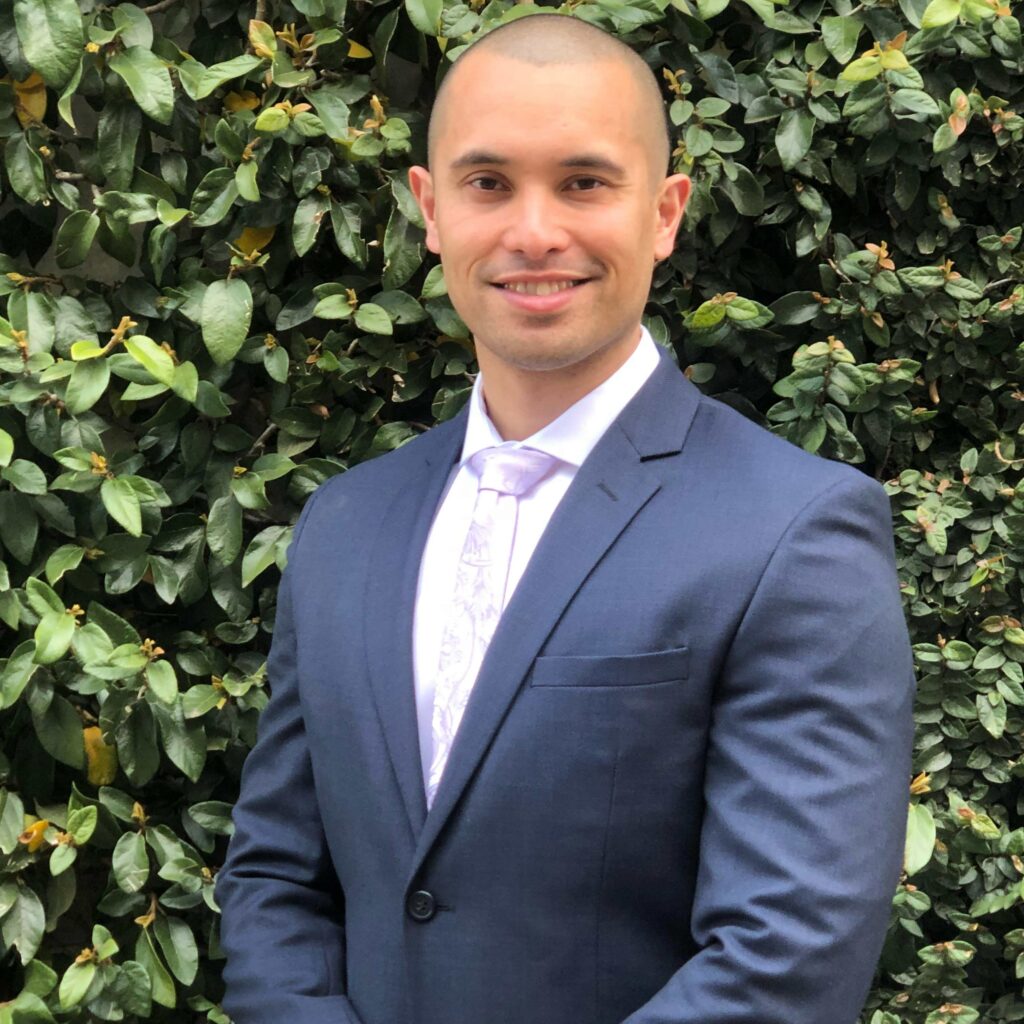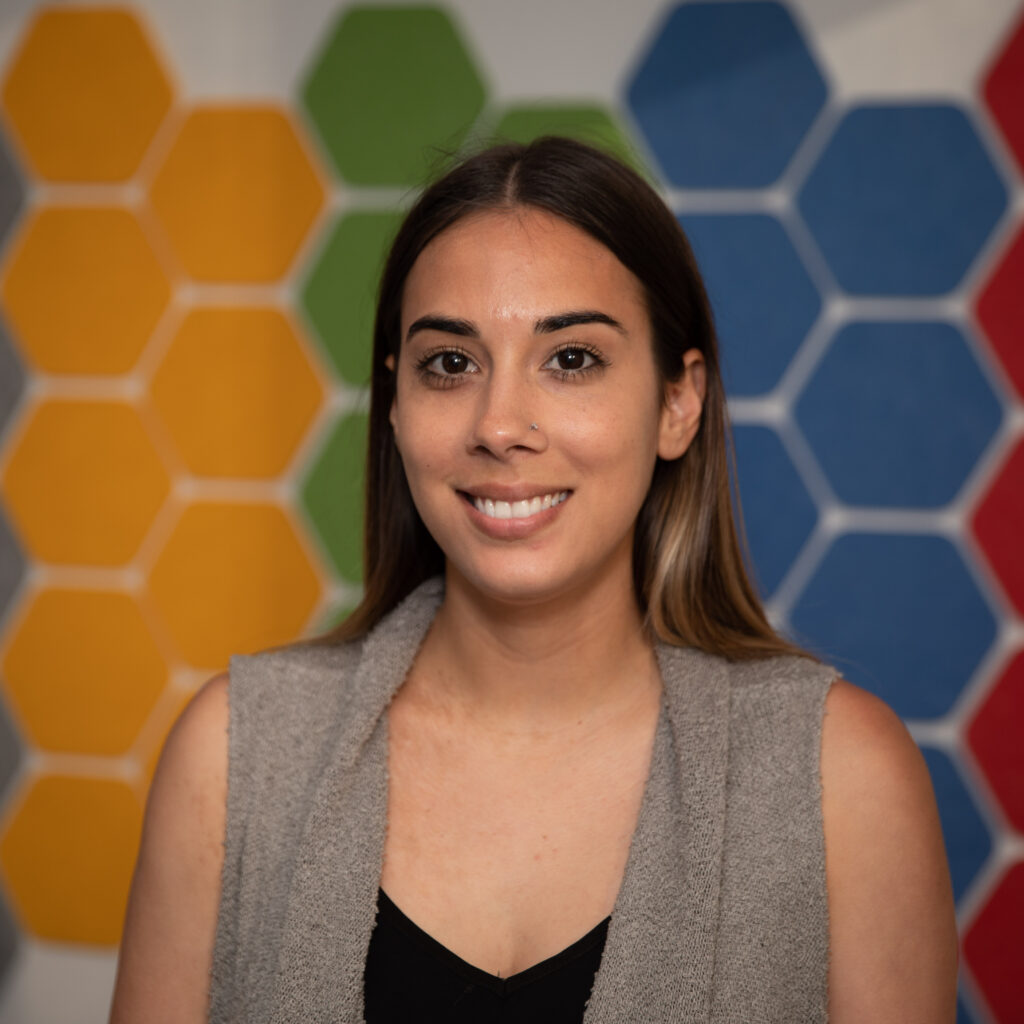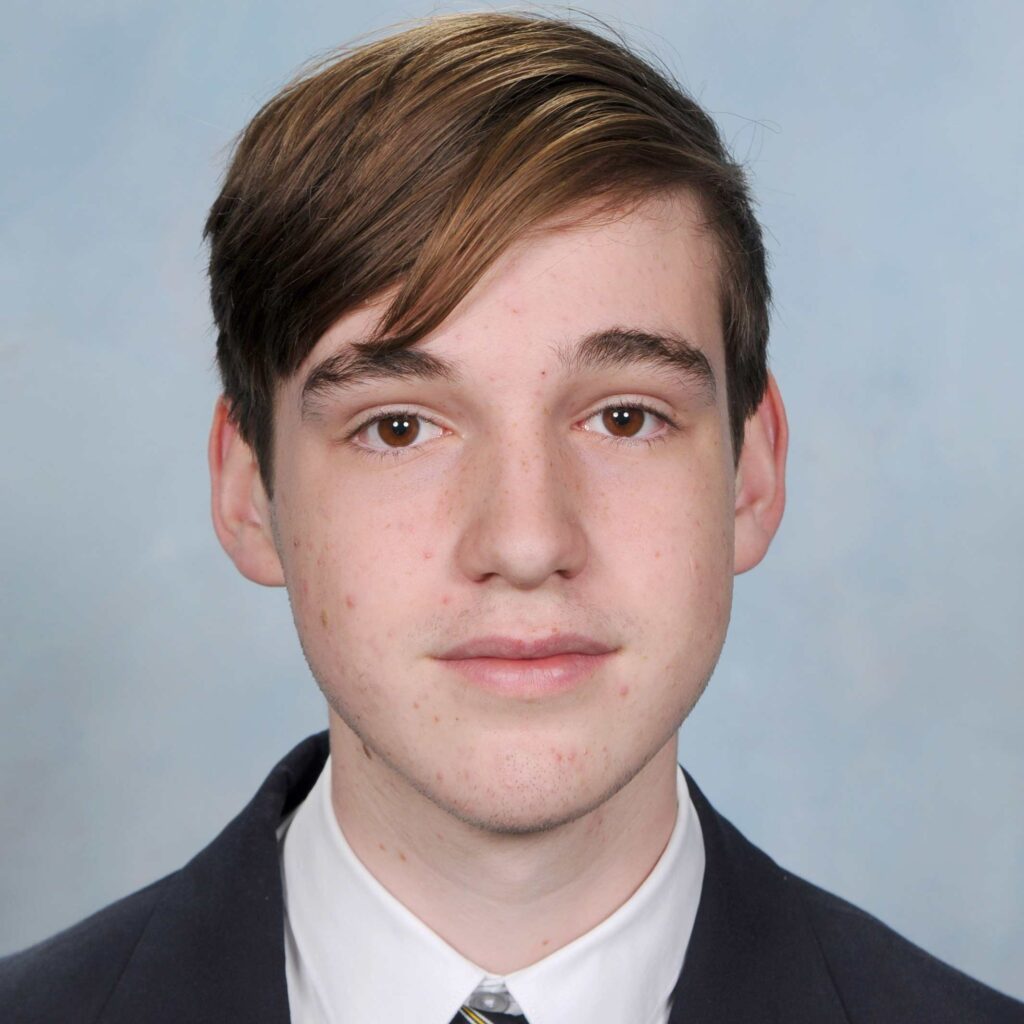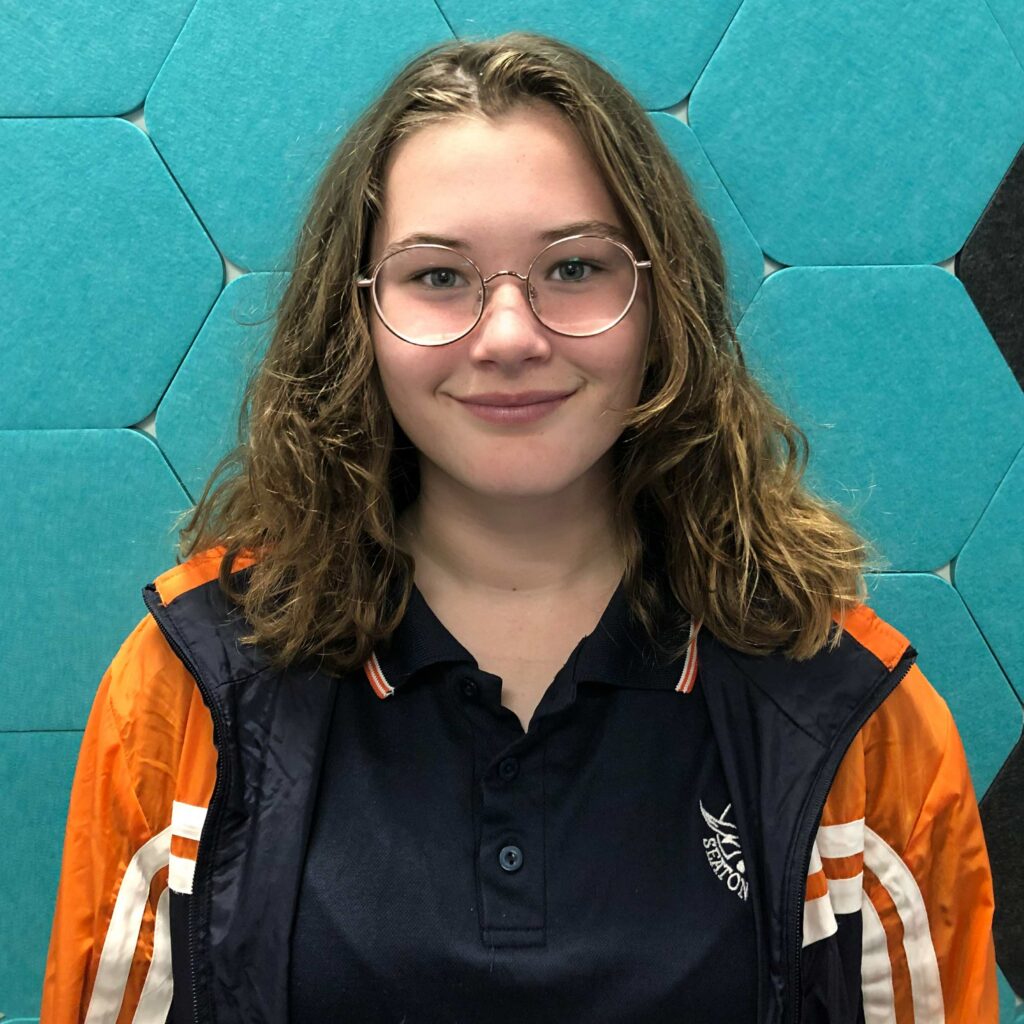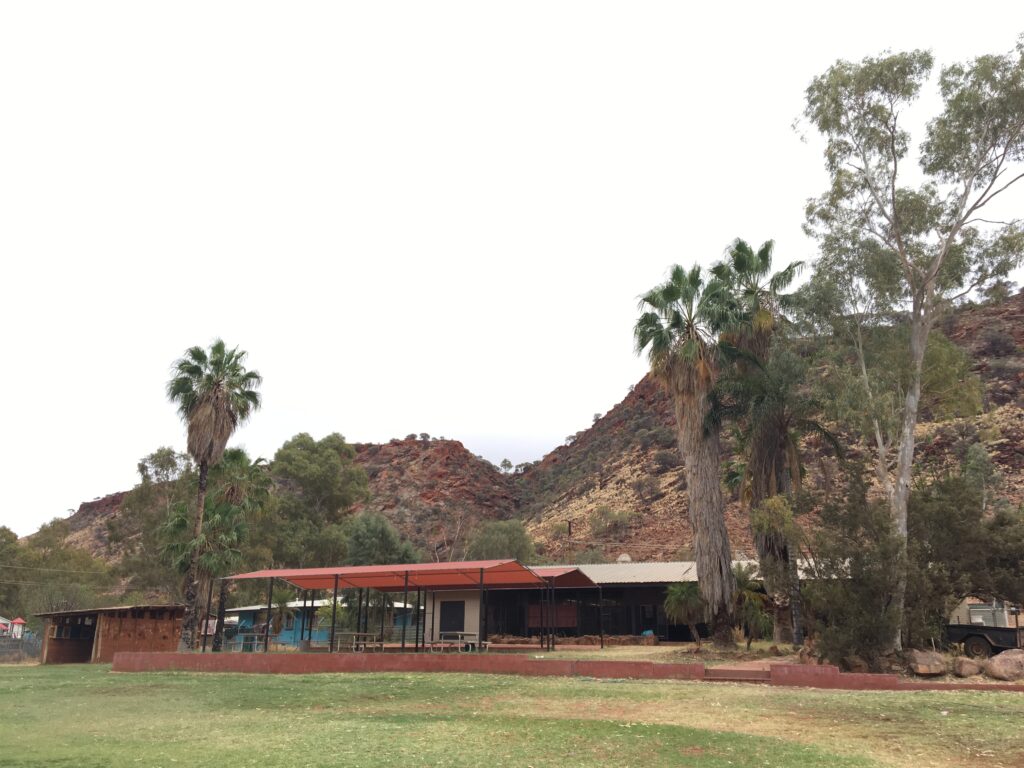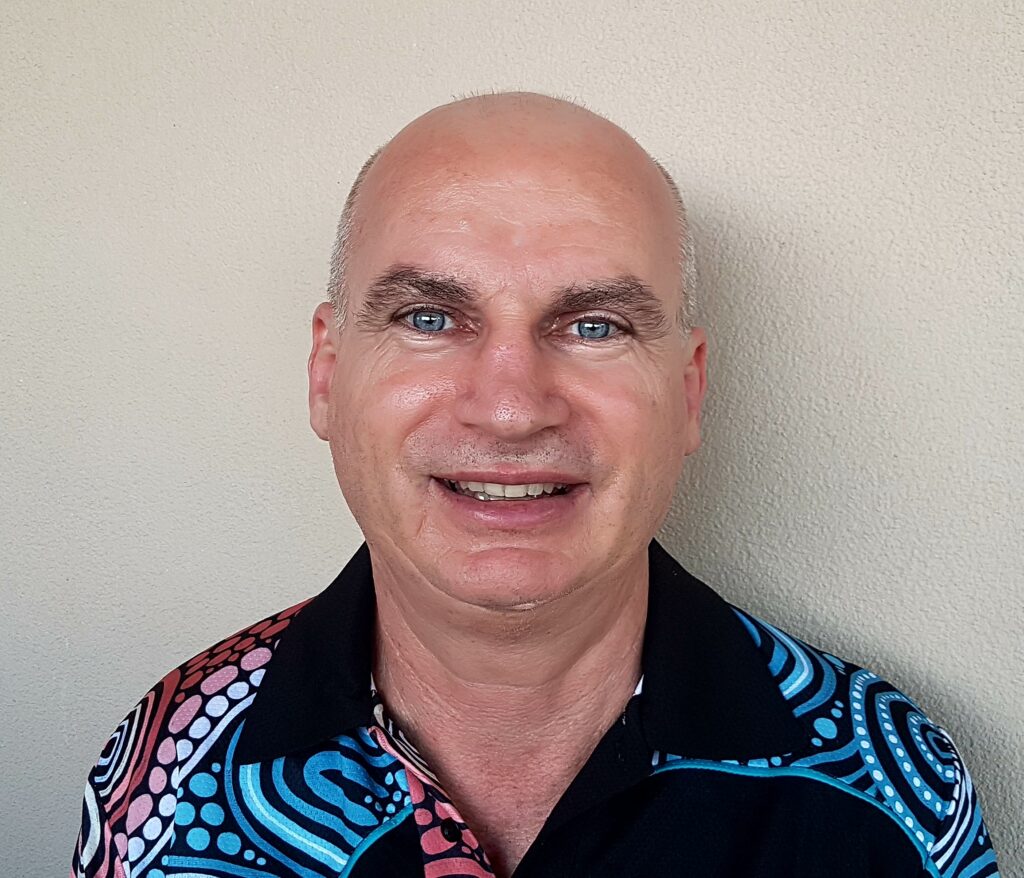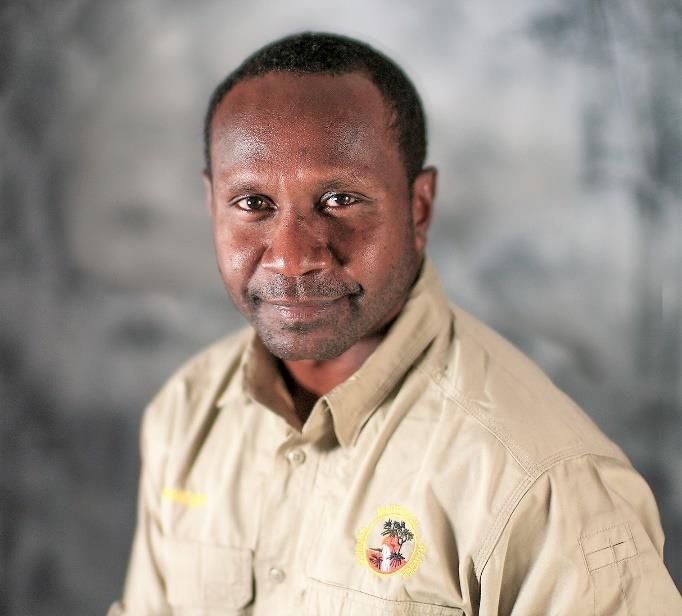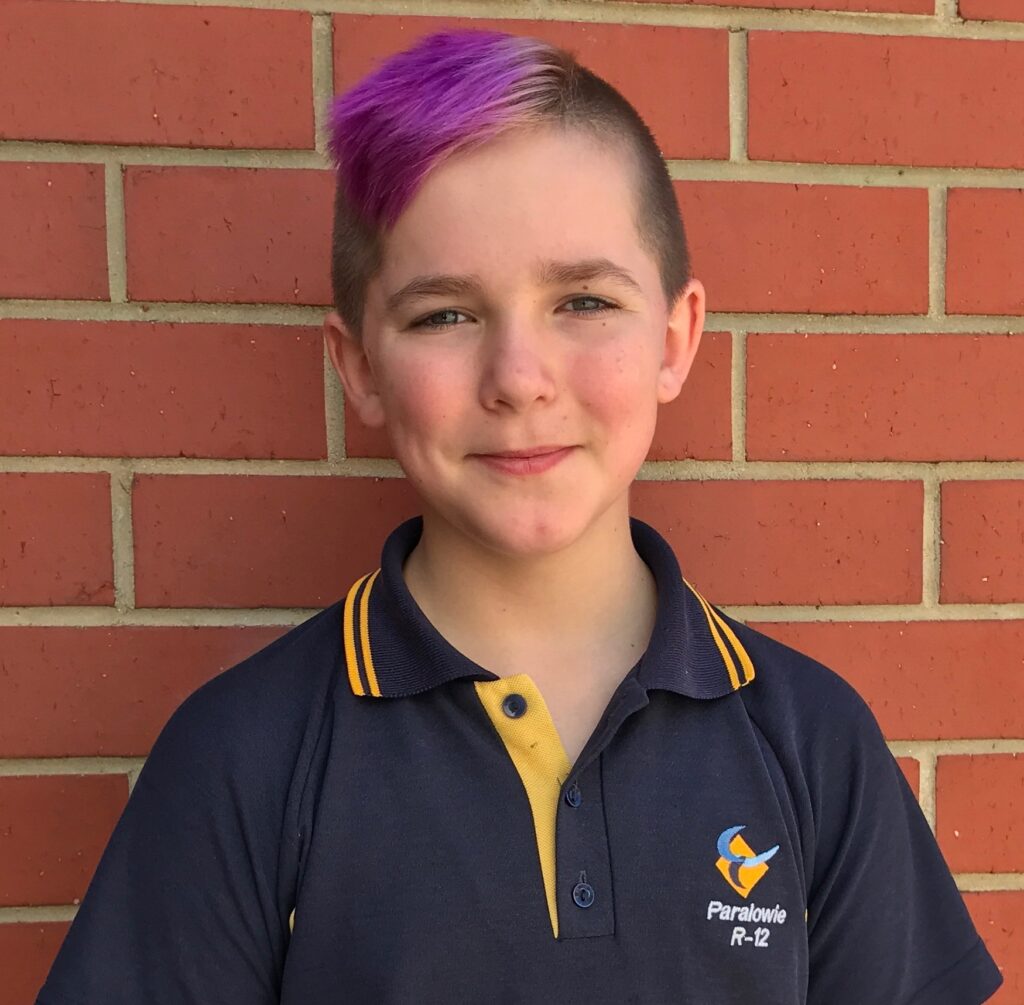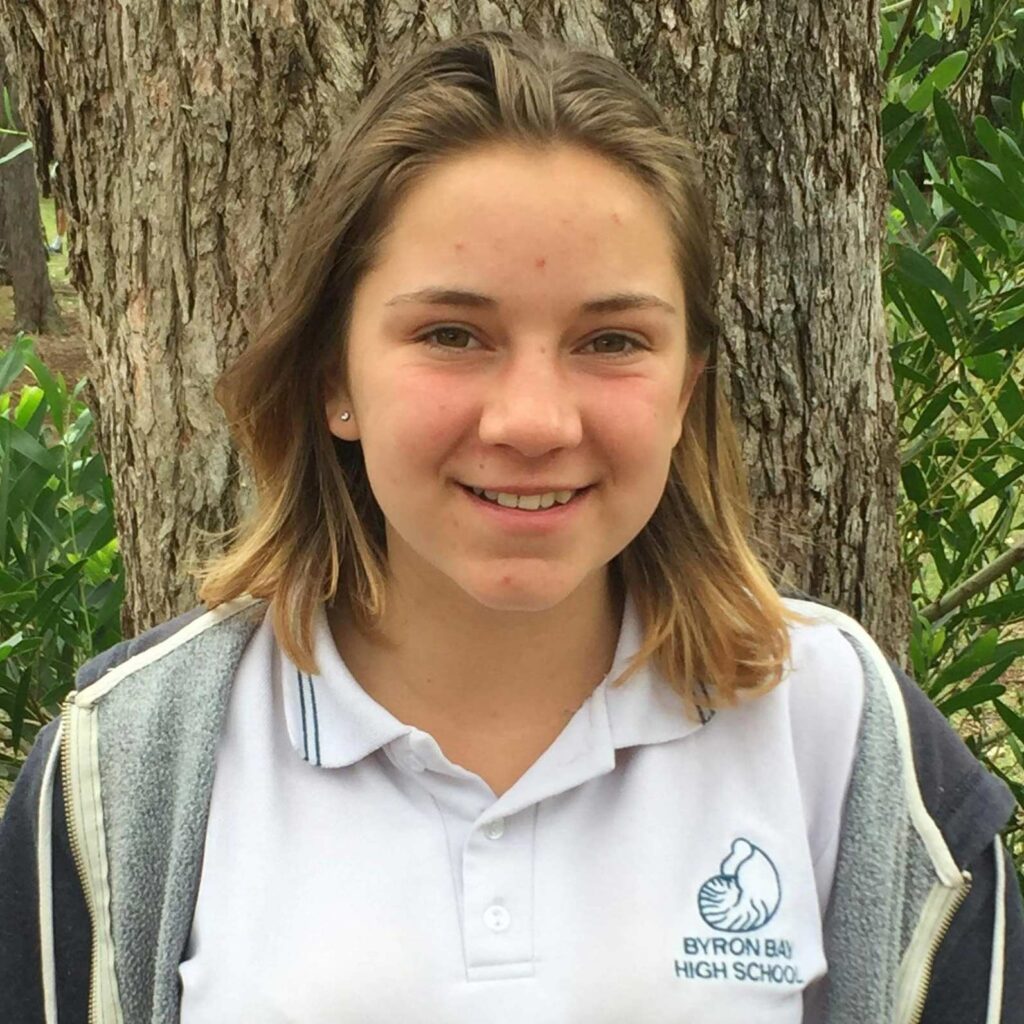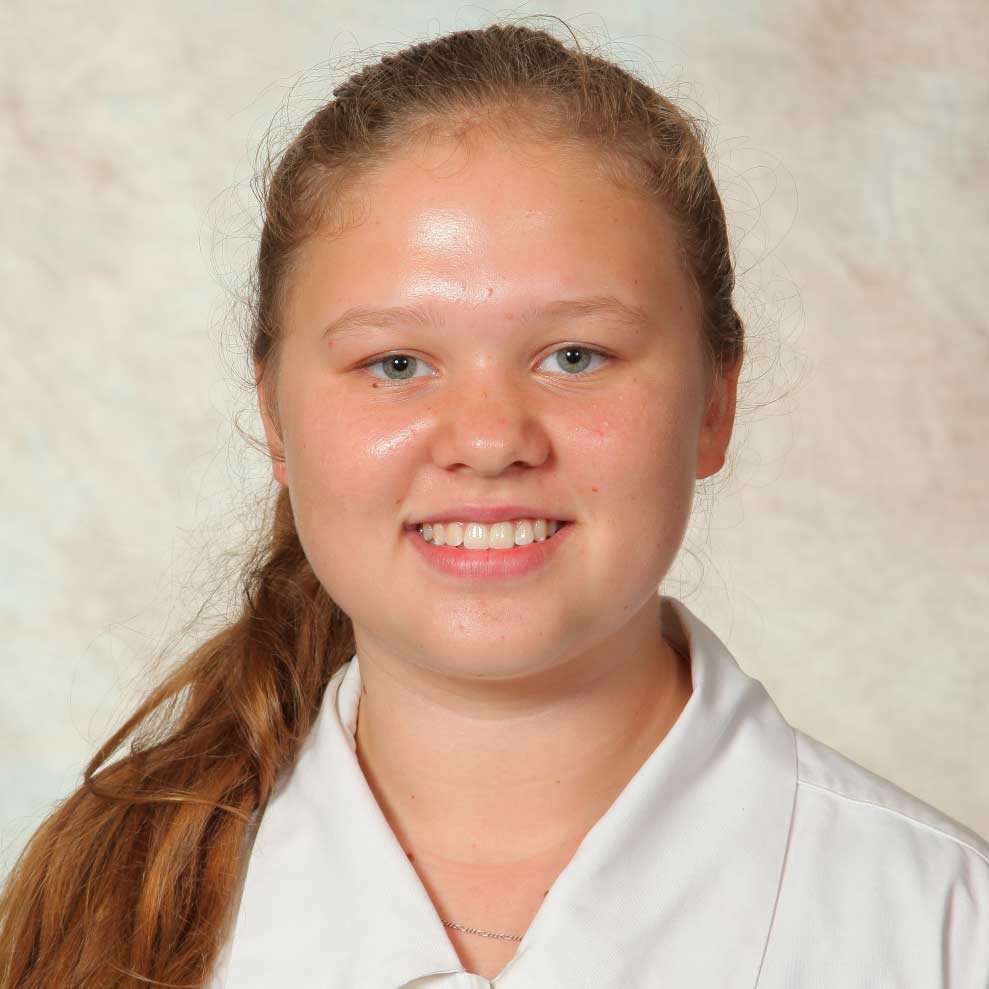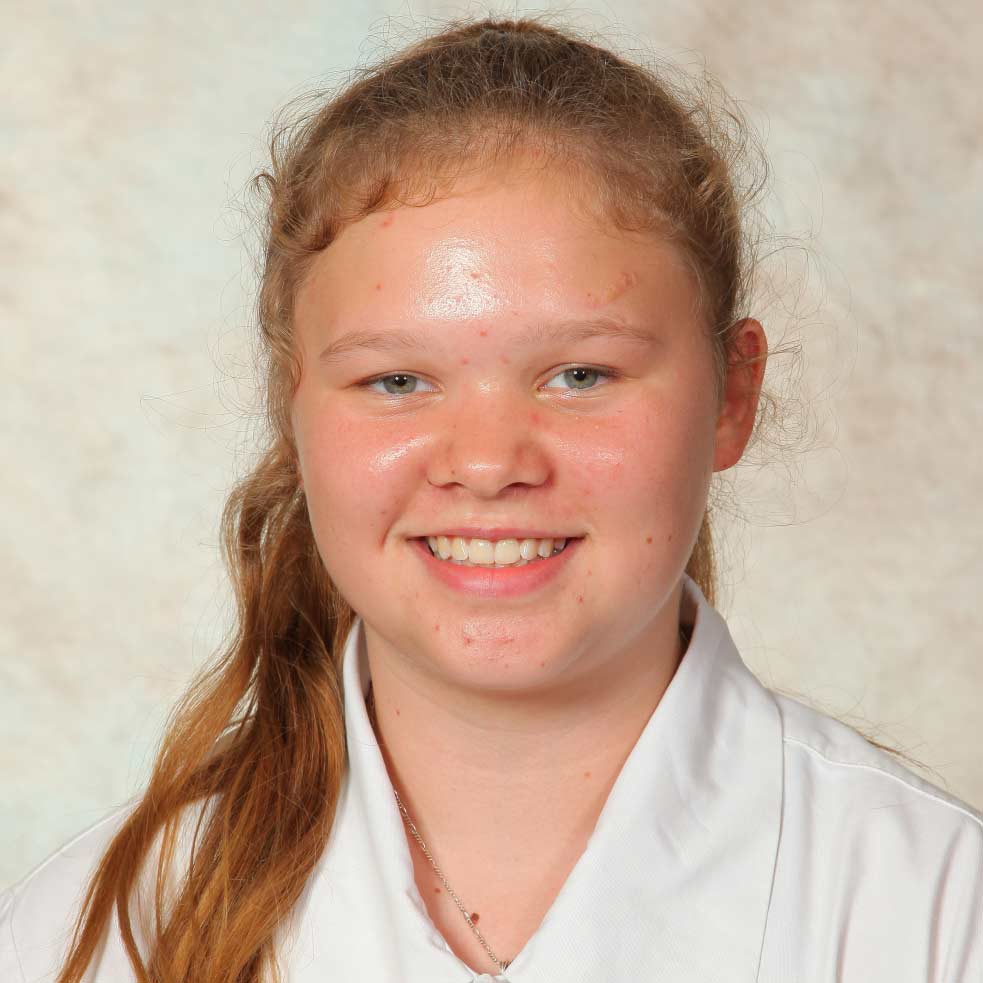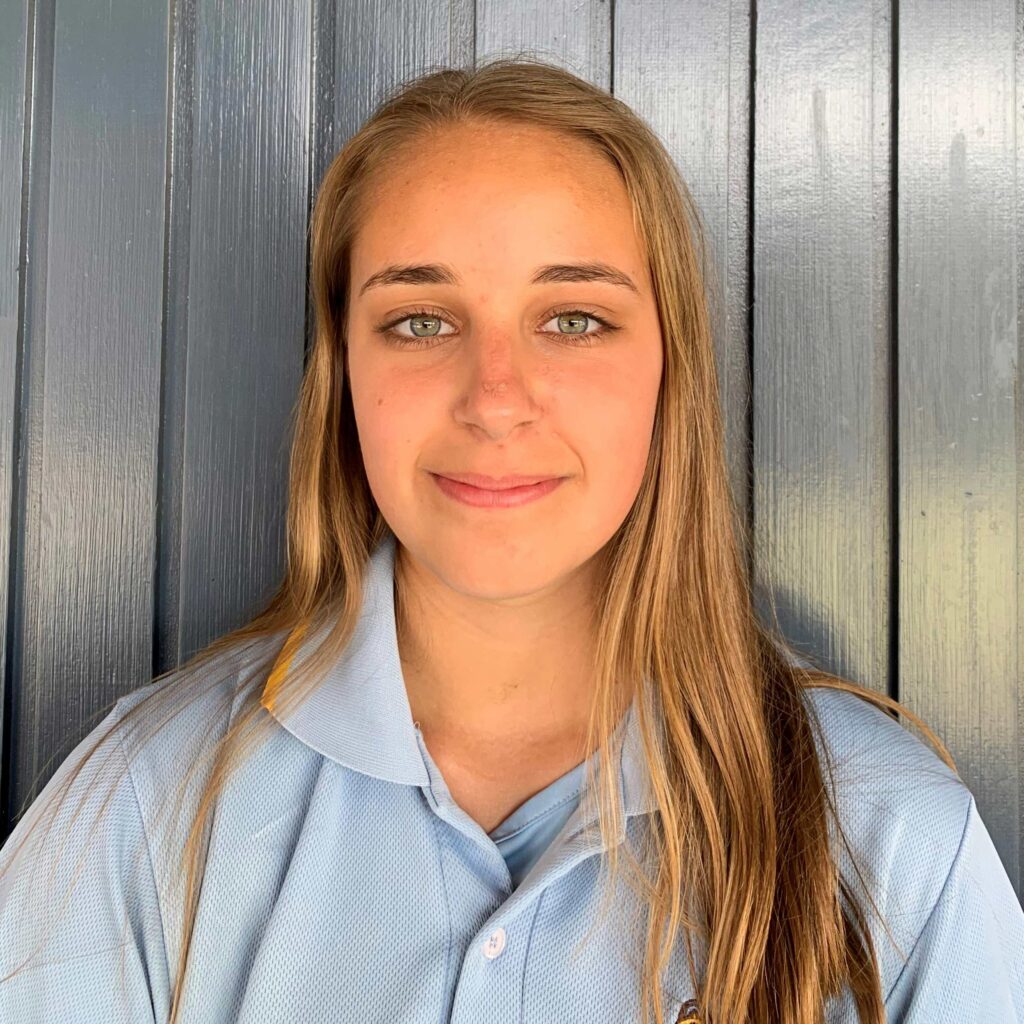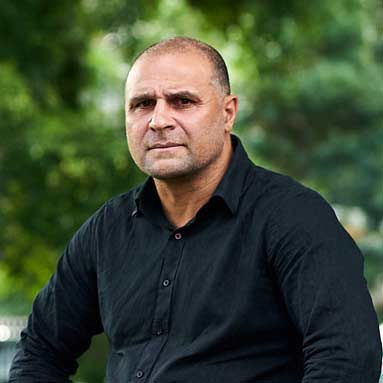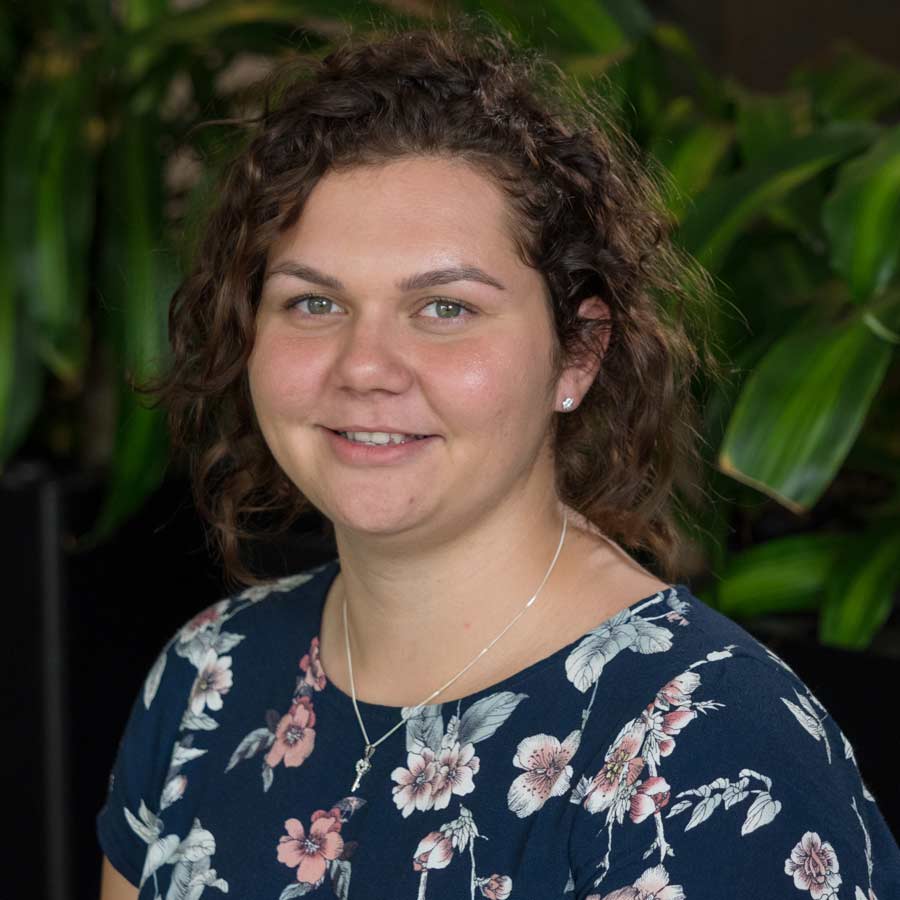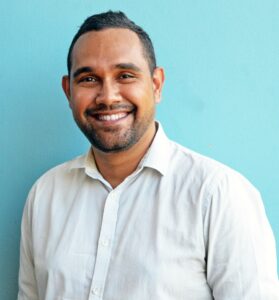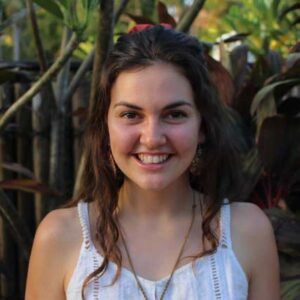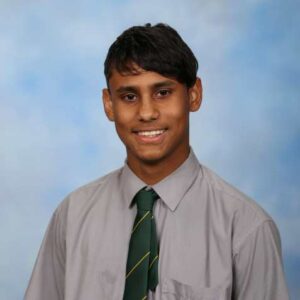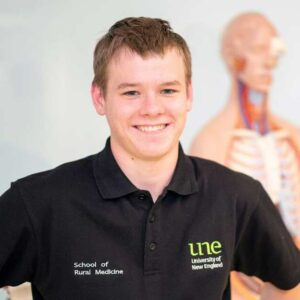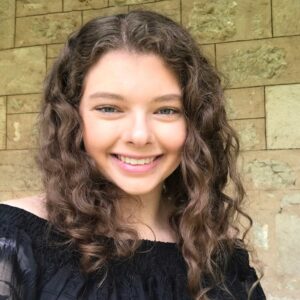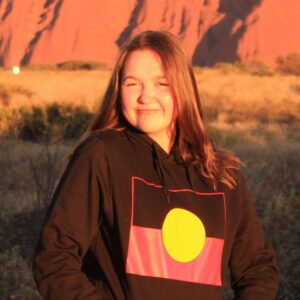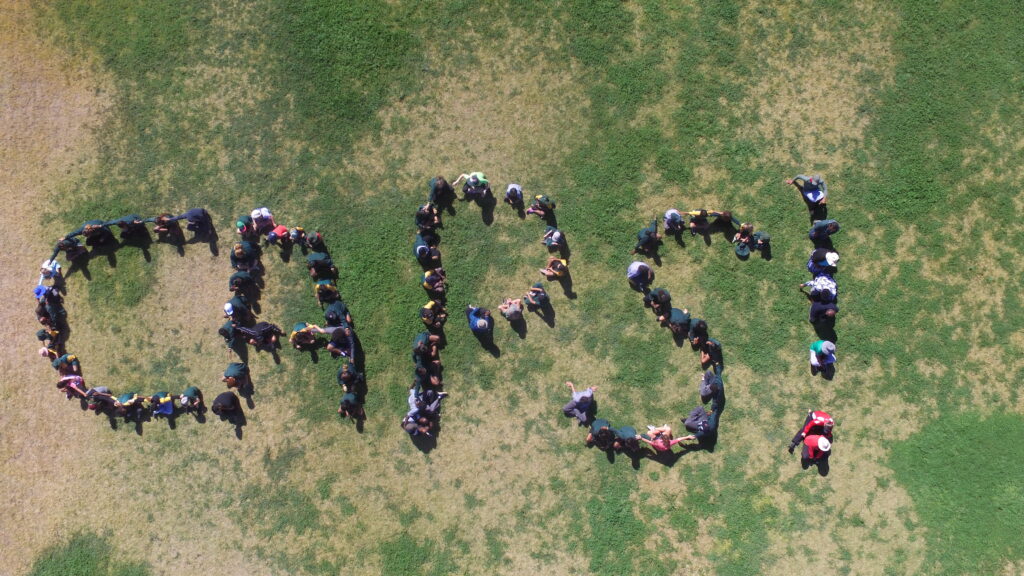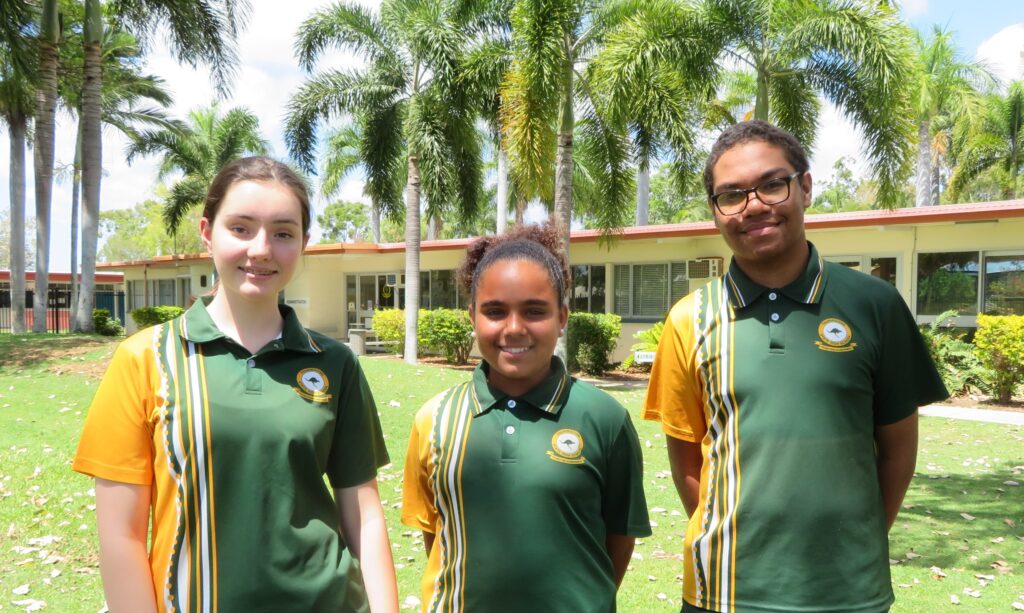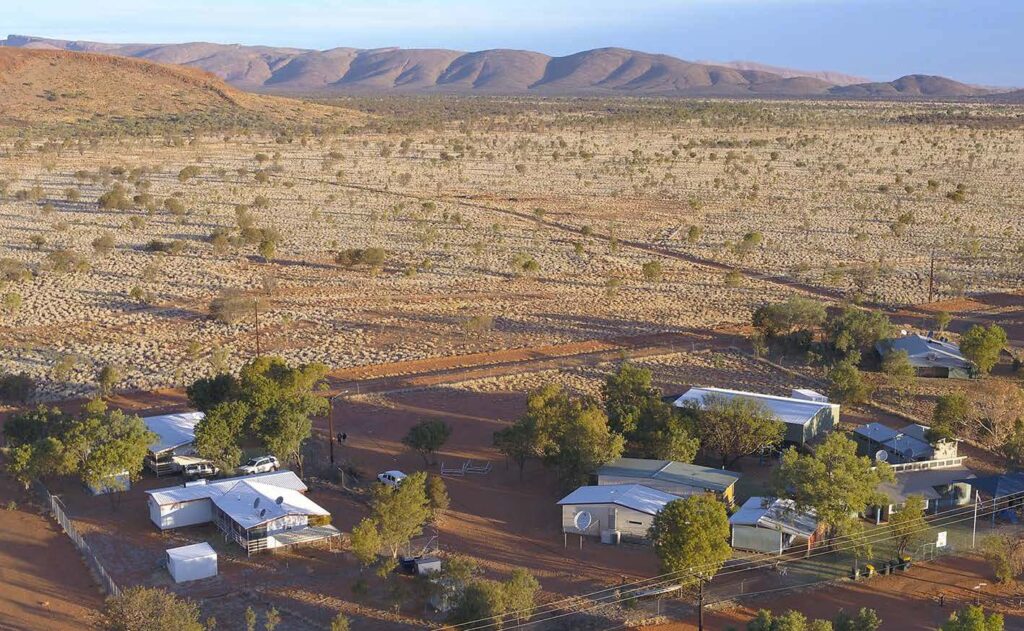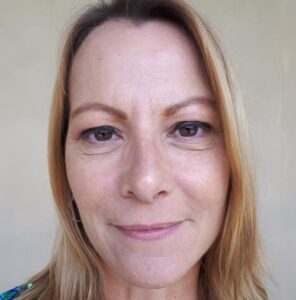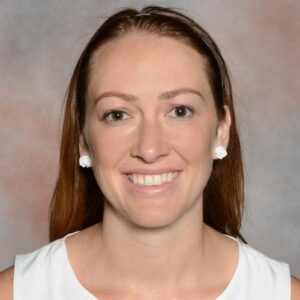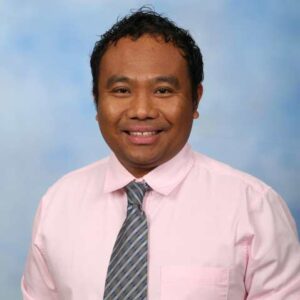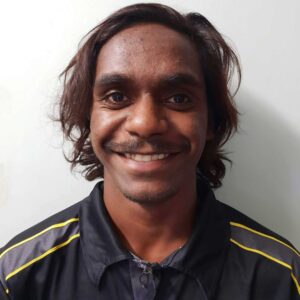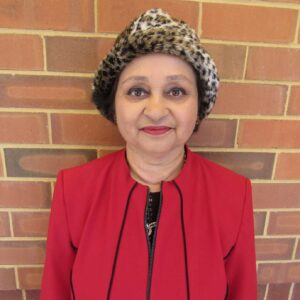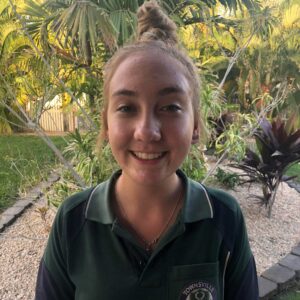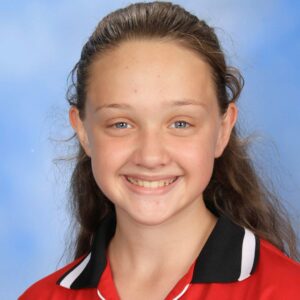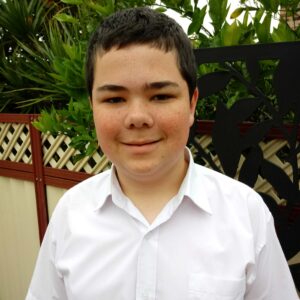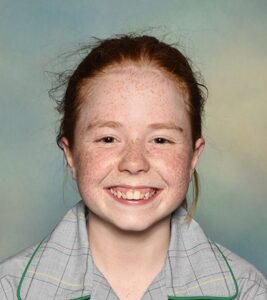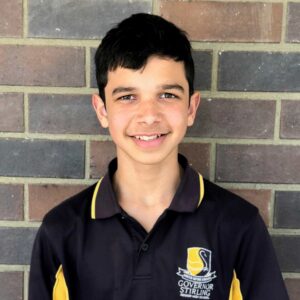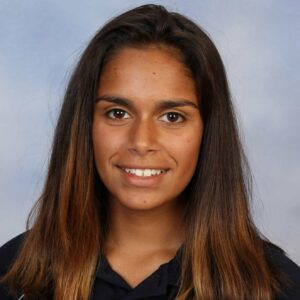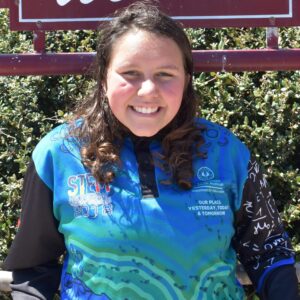2018 Indigenous STEM Award winners and finalists
The 2018 Indigenous STEM Award were announced in March 2019 at Areyonga School in the Northern Territory.
The Aboriginal and Torres Strait Islander STEM Professional Career Achievement Award – Winner
Rhett Loban, Macquarie University, New South Wales
Rhett Loban is a Torres Strait Islander man, born in Brisbane. He is an Associate Lecturer at Macquarie University and is currently undertaking a PhD in Media Studies at the University of New South Wales. He also has a Masters of Information Technology from the Queensland University of Technology and a Bachelor of Arts (Honours) from the University of Queensland. Rhett is the designer of Torres Strait Virtual Reality, a virtual reality game to highlight the unique culture, traditions and history of Torres Strait Islander people. The game also illustrates Indigenous environmental knowledge of seasonal, plant and animal life cycles and how this aligns with the island surroundings like the stars and the wind. The game has been implemented in several university courses relating to education, environmental policy, Indigenous studies and game design. Torres Strait Virtual Reality has also been used to engage Aboriginal and Torres Strait Islander high school students in discussions around STEM careers. Rhett is passionate about using new technology and ways of learning in schools and universities, and is currently working at Macquarie University looking at the use of virtual reality for learning and teaching.
The Aboriginal and Torres Strait Islander STEM Professional Early Career Award – Winner
Tui Nolan, University of Technology Sydney, New South Wales
Tui Nolan is a Gudjal man, who grew up in Sydney. He has completed a Master of Science and is currently completing a PhD in Statistics at the University of Technology Sydney (UTS). In 2018, he received a Fulbright Future Postdoctoral Scholarship, which will enable him to take on a postdoctoral position at Cornell University in 2019. He has also won numerous awards for academic excellence throughout his studies. His research in Physics, Statistics and Mathematics has been applied in determining the major factors preventing Indigenous Australians from entering the driver licensing system through The George Institute for Global Health, which was the basis for the New South Wales Driver Licensing Access Program. During his time interning for the Reserve Bank of Australia (RBA) he used his mathematical and statistical knowledge to replace antiquated methods for determining interest rates and loan cycles. Following from the success with his internship, the RBA set up an Indigenous internship program with CareerTrackers. Tui has mentored Aboriginal and Torres Strait Islander students as they transition to university through the Jumbunna Institute for Indigenous Education and Research, the Aboriginal Summer School for Excellence in Technology and Science, Aurora Education Outreach and the Galuwa Science Experience at UTS.
The Aboriginal and Torres Strait Islander Student STEM Achievement Awards
The Aboriginal and Torres Strait Islander Tertiary Student STEM Achievement Award – Winner
Taylah Griffin, Queensland University of Technology, Queensland
Taylah Griffin is a proud Gangulu woman who grew up in Gordonvale in Far North Queensland. She is currently completing Bachelor of Engineering (Honours) at the Queensland University of Technology (QUT). She also tutors first-year engineering students at QUT, and has presented at InspireU UQ, a tertiary aspiration-building program for Indigenous young people.
Taylah is passionate about aeroplanes and flight technology and has completed engineering internships at Boeing Defence Australia and QANTAS. She is also a Boeing Defence Australia STEM ambassador and has been an integral part of the Boeing Defence Australia Reconciliation Action Plan working team.
The Aboriginal and Torres Strait Islander Secondary Student STEM Achievement Award – Winners
Jordan Salmon, Clancy Catholic College, New South Wales
Jordan Salmon is a proud member of the Wiradjuri nation, an accelerated student and House Leader at Clancy Catholic College in South-Western Sydney. He is passionate about electronics, technology and computer science and has participated in numerous coding workshops and competitions including National Computer Science School NCSS Challenge. He developed a method of automatically reading number plates in accessible parking spaces and comparing them to a database of permit holders using open source OCR software, custom Python and scripting software with image conversion, database and email integration. He also developed and constructed a ‘B-Pad’ to teach stage one children problem solving and a robotic system that moves blocks for teaching them mathematics. Jordan would like to become a software engineer.
Jordan Griffiths, Seaton High School, South Australia
Jordan Griffiths is a year 10 student at Seaton High School in South Australia. Her background is the Barkindji Nation of the Darling River basin, New South Wales. She studied year 11 and 12 subjects to achieve her Remote Pilot’s License and Aeronautical Radio Operators Certificate, and has designed and tested a specialised mechanism for distributing herbicide from a drone in collaboration with the University of Adelaide’s Centre of Applied Conservation Science and Unmanned Research Aircraft Facility. As a STEM project she has also lead a team of students to redesign Seaton High School’s Library into an environmentally sustainable 21st century Learning Space. Jordan has participated in the ASPIRE Leadership Program, McLeod Indigenous Youth Leadership program and the South Australian Space School Camp.
School Award- Winner
Areyonga School, Northern Territory
Areyonga School is a bilingual school in the Northern Territory. It has been involved with the Science Pathways for Indigenous Communities program since 2016. Areyonga School works closely with a community of Elders that value and share traditional ecological knowledge with staff and students to allow for Two-way science. Students learn science in Pitjantjatjara and English allowing the development of language capabilities and the full conceptual depth in science understandings. Overnight and day excursions with teachers and Elders allow for students to learn skills such as field data collection, identification methods, measurement of species populations and identification of environmental factors that impact health of plants and animals. These skills are reinforced through traditional methods of song and dance to demonstrate that culture and science education go hand in hand. Resources are created from these excursions that students share with other family members, embedding the importance of science to the entire community.
Teacher Award – Winner
processed by AtomJPEG 1.5.0n
Markus Honnef, Innisfail State College, Queensland
Markus Honnef is the Head of Science and STEM Ambassador at Innisfail State College. He is driven by an unrelenting desire to implement programs that engage and change the paradigm of all students so that they can identify themselves as scientists and become aware of varying career options. Since 1988, he has been engaging with Elders and community to engage Aboriginal and Torres Strait Islander students in education. He has been actively involved in the Inquiry for Indigenous Science Students (I2S2) program since 2016, first at Gordonvale State High School and now at Innisfail State College as well as assisting in implementing the program at Smithfield State High School. Markus has also engaged with external organisations such as CSIRO, James Cook University, Landcare and other STEM professionals to broaden the view of students.
STEM Champion Award – Winner
Marcus Lacey, Gumurr Marthakal Rangers, Northern Territory
Marcus Lacey is a proud Yolngu man, a community leader and a ranger for the Marthakal Indigenous Protected Area. He works with Shepherdson College in Galiwin’ku through the Learning On Country program. He engages students through multi-language translation, bilingual-bimodal methods, and inclusive and targeted kinship practice within the classroom and on excursions. Marcus is passionate about the significance of local traditional knowledge to STEM education and its capacity to provoke confidence, psychological resilience and positive personal identity in students.
The Aboriginal and Torres Strait Islander Student Science Award – Winners
Deklan, Paralowie R-12 School, South Australia
Deklan is a student at Paralowie R-12 School in South Australia. He has a love of science, technology and engineering. As part of the Young ICT Explorers Competition, he built a prototypic robotic arm using Lego and is now developing cost-effective solutions for limbs on a mass scale using 3D printing technologies. He has also participated in the Science Technology Engineering Maths Social Enterprise Learning Challenge and coded and built a fan hat designed for farmers working in drought conditions. In 2017 and 2018, he attended the Aboriginal STEM Congress and is part of the Virtual Reality Inquiry Project with the University of South Australia.
Sha-Kira Austin, Byron Bay High School, New South Wales
Sha-Kira Austin is a student at Byron Bay High School in New South Wales. She is in the accelerated maths class and last year received the Principals Award recognising her academic excellence. She also completed her Individual Student research project on how chewing gum impacts cognitive brain function. She is thankful that her teachers made her realise that it is important to be pushed in order to extend yourself. She enjoys the process of learning and in particular loves chemistry. After high school Sha-Kira would like to study psychology.
The Aboriginal and Torres Strait Islander Student Maths Award – Winners
Stacey Edwards, Mount St Bernard College, Queensland
Stacey Edwards is a proud descendant of the Yidinji and Ngudjan peoples. She is a student at Mount St Bernard College in Herberton, Queensland. Stacey has been part of the Indigenous Leaders of the Future program and the University of Queensland InspireU program. Along with her sister Renee, she has been helping members of the Jirrbal People of Koombaloomb, Ravenshoe and Herberton areas to resist the placement of Wind Farms near sacred sites by using trigonometry. She has also used maths to solve real life problems relating to farming on her family’s properties. Stacey likes motorbike riding and playing guitar.
Renee Edwards, Mount St Bernard College, Queensland
Renee Edwards is descendant of the Yidinji and Ngudjan nations and a student at Mount St Bernard College in Herberton, Queensland. This year she participated in the University of Queensland InspireU Camp and further developed her love of maths and STEM. Along with her sister Stacey, she has been using trigonometry to help members of the Jirrbal People of Koombaloomb, Ravenshoe and Herberton areas resist the development of Wind Farms near sacred sites. She has also used maths to calculate ratios for chemicals and the potential returns for planting different types of produce on her family’s properties.
Lara Riley, Newton Moore Senior High School, Western Australia
Lara Riley is a proud Noongar girl and Indigenous leader at Newton Moore Senior High School in Bunbury, Western Australia. She enjoys STEM, especially projects with an emphasis on mathematics. Lara has completed projects in building hand cranked, solar powered and bike powered phone chargers. In another project she led a team of students to make a film about analysing bacteria growth around her school. She wishes more people knew that “maths is the best part of STEM”.
The Aboriginal and Torres Strait Islander STEM Professional Career Achievement Award – Finalists
Brett Leavy
Brett Leavy is a Kooma man and Creative Director at Bilbie Virtual Labs. Over 25 years, he’s been driven to explore how new technologies and First Nation culture might engage Aboriginal and Torres Strait Islander young people. His career has spanned teaching, marketing for the Townsville Indigenous Media Association, management with the National Indigenous Media and Radio Services (NIRS). Most recently, his focus is Virtual Songlines – a company developing a software for the development of virtual heritage interactive 3D landscapes to promote, protect and persevere the collective knowledges of First Nations people. He applies rigorous academic and environmental research, historical documents and the oral histories of Traditional Owners to make each immersive virtual heritage environment that represent a place prior to European colonisation. Each virtual heritage environment offers a unique and specialised educational experience. This work has been refined through many collaborations with traditional owners, the Museum of Applied Sciences, Qld Museum, Microsoft, St Saviours College in Toowoomba and International Grammar School in Sydney teaching students ways to combine cultural heritage with coding (for culture).
The Aboriginal and Torres Strait Islander STEM Professional Early Career Award – Finalists
Jade Gould
Jade Gould is a Butchulla and Woppaburra woman from Hervey Bay and currently works for the Department of Natural Resources, Mines and Energy. She has a Bachelor of Science from James Cook University and is completing a Masters of Science at the University of Southern Queensland, with her thesis focusing on the impacts of climate change on First Nation’s peoples. Her work involves the Aboriginal consultation on the cultural values, uses of water and the continuous water quality monitoring program in the Queensland Murray Darling Basin. As part of these projects, Jade consulted with 12 Nations who identified an interest in the Condamine-Balonne and Border Rivers-Moonie Water Resource plan areas to understand how these 12 Nations used and valued water on their Traditional Country. As a result, 30 percent of the Water Resource Plan submissions came from Indigenous peoples. She is also using these experiences and skills to better manage her traditional country. Jade also tutors Aboriginal and Torres Strait Islander undergraduate and pathways students at the University of Southern Queensland.
The Aboriginal and Torres Strait Islander Student STEM Achievement Awards- Finalists
Tertiary Student Award- Finalists
Matthew Heffernan
Matthew Heffernan is a Pintupi-Luritja man. He is a Digital Customer Specialist at Captovate and is currently studying a Bachelor of Information Technology at Charles Darwin University. He is passionate about using information technology to create social change. He has participated in the Cyber Security Challenge and CDU Coding in the Dark.
He has also completed an independent project on the use of gamification for sharing cultural knowledge. Matthew is also a contributor to IndigenousX.
Tiahni Adamson
Tiahni Adamson is an Education Officer for CSIRO, working on the Indigenous STEM Girls Academy and is studying a Bachelor of Science (Wildlife Conservation Biology) at the University of Adelaide. She has cultural ties to Thursday Island and Darwin. Tiahni is an Indigenous Student Ambassador at the University of Adelaide, as well as a Cultural and Academic Mentor for the Aboriginal Summer School for Excellence in Technology and Science (ASSETS). She has also taught science and mentored students at the Yothu Yindi Youth Forum at the 2018 Garma Festival. Tiahni would like to educate, support and inspire other Aboriginal and Torres Strait Islander students to realise their potential and feel empowered to follow their dreams.
The Aboriginal and Torres Strait Islander Secondary Student STEM Achievement Award – Finalists
Uriah Daisybell
Uriah Daisybell is from the Ngalingkadji community. He is a year 12 student at CAPS Coolgardie (Christian Aboriginal Parent-directed School) in Western Australia. Uriah won the Science Teachers Association of Western Australia’s 2018 Young Scientist of the Year Award and first prize in the engineering category for designing a heavy metal filter using components like neodymium magnets, carbon coated mussel shells and charcoal. He was inspired to complete this project due to the ongoing problem of contaminated water in remote Aboriginal communities. He will also be presenting his project at the Water Corporation in Perth and the Safe Water Summit in Brisbane. He hopes to study engineering at university.
Deagan Marchant
Deagan Marchant is a Kamilaroi man and student at St Mary’s College in Gunnedah, New South Wales. He is passionate about science, mathematics, metaphysics, and technology and has won numerous academic awards including the Gunnedah 2018 NAIDOC Week Academic Achiever – High School Award. He completed a work placement at Newcastle University with Emeritus Professor Peter Dunkley and Associate Professor Philip Dickson of the School of Biomedical Sciences and Pharmacology (Neurochemistry) studying Parkinson’s disease. He will also be attending the Aboriginal Summer School for Excellence in Technology and Science in January. Deagan hopes to be a part of the innovation which will lead to a day in which genetic editing, nanotechnology, and biomechanics are all united to eliminate disease, pain, and suffering in all people, across the globe.
Jasmyn Lloyd
Jasmyn Lloyd is a Ngarrindjeri woman residing the Riverland and a student at Westminster School in Adelaide, South Australia. She has attended the University of Sydney’s Bunga Barrabugu Summer Program, Rural Doctors Workforce Agency’s medSPACE Residential Workshop and in the University of Adelaide’s Karnkanthi Indigenous Education Program. She has also completed work experience at The Sydney Adventist Hospital and SAN Clinical School. In 2017, she went on exchange to South America and increased her Spanish language skills as well as learning about different cultures solve problems in a variety of ways leading to the same outcome. Jasmyn aspires to be a doctor and to work in rural or remote Australia to improve the overall health of Australians.
Kelly Barrett
Kelly Barrett is a proud Gunditjmara woman from the south western region of Victoria and a student at Matthew Flinders Girls’ Secondary College in Geelong. She has a passion for STEM, particularly biology. She has attended the John Monash Science School Regional Exchange Program at Monash University, Australian National University Science and Engineering Summer School, Aboriginal Summer School for Excellence in Science and Technology, Earthwatch Student Challenge, Nura Gili Winter School and James Cook University Winter School. She has also been a Year 11 mentor for the Australian Indigenous Mentoring Experience (AIME) at Deakin University. After high school, Kelly would like to pursue a medical career.
School Award- Finalists
CAPS Coolgardie
CAPS Coolgardie (Christian Aboriginal Parent-directed School) is an independent Christian school in the Goldfields-Esperance region of Western Australia. The school’s successful STEM program uses culturally relevant learning experiences and open inquiry to engage students in experiences with real-life local and community significance. The program has seen independent student projects achieve national recognition within the media and in 2017 and 2018, won the Science Teachers Association of Western Australia Science Talent Search Secondary School of the Year Award. The majority of the students who have participated in the program have won regional and state science awards. In 2018, three students from CAPS Coolgardie were Western Australia’s only student finalists in the 2018 BHP Foundation Science and Engineering Awards. The school also partners with industry to give students insight into real-world STEM applications such as AusIMM, North Star, Evolution Mining, GEMIA, Rural Clinical School of Western Australia, WASM, GLSC and University of Western Australia.
Thuringowa State High School
Thuringowa State High School is a secondary school in Townsville with 43 percent of students identifying as Aboriginal and/or Torres Strait Islander. The school leads a partnership between the Department of Education and James Cook University called the Global Tropics Future Project which is improving outcomes and building aspirations for students in rural and remote settings across North Queensland. Students are also engaged in multiple STEM programs including Inquiry for Indigenous Science Students (I2S2) program and Prime Futures. Students from the school have also participated in the Aboriginal Summer School for Excellence in Technology and Science (ASSETS), James Cook University Winter School for Australian Aboriginal and Torres Strait Islander students and the Aboriginal and Torres Strait Islanders in Marine Science program. There has been a steady increase in enrolment in STEM subjects and an increase in graduates going on to university study.
Watiyawanu School
Watiyawanu School is a school in the Northern Territory with a strong Indigenous Language and Culture program. Since 2009, the school has taught Two-way science that combines traditional ecological knowledge with Western science-based inquiry. This includes On Country excursions that allow students to consolidate their knowledge and understandings through practical experiential-based lessons. These On Country visits have been led by local Indigenous teachers, Elders and Indigenous rangers and follow-up classroom work includes producing bilingual texts. This bi-literate approach allows staff and students to create an ethos that local cultural knowledge is valued and shared between Aboriginal staff and students and non-Aboriginal staff. The school has also established a professional development network with four other schools to focus on Indigenous Language and Culture and STEM curriculum outcomes. Additionally, Watiyawanu School has formal partnerships with Tangentyere Council and CSIRO as well as informal partnerships with the Central Land Council Anangu Luritjiku Rangers and Kiwirrkurra Indigenous Protected Area Rangers.
Teacher Award- Finalists
Nicole Simone
Nicole Simone is the Indigenous Education Manager in Queensland’s North Coast. She has led a regional project called Murri Maths: Connecting to Country, a comprehensive and practical guide for all teachers working from Prep to Year 10 that is aligned to the Australian Curriculum Mathematics. The development of this project included consultation with Elders, Traditional Custodians, Aboriginal and Torres Strait Islander teachers and curriculum experts. She has presented sessions on Murri Maths: Connecting to Country at schools and conferences across the state. These sessions have seen an increase in staff knowledge and capability of embedding place-based Indigenous histories, cultures and knowledges into lessons as well as increased student engagement in STEM.
Ashley Stewart
Ashley Stewart is the Head of Mathematics at Newton Moore Senior High School in Bunbury, Western Australia. She is a champion for engaging students who are at academic risk in STEM subjects and believes education can transform the lives of students. She also uses her knowledge to lead and develop teacher capacity and positive change. She has designed and implemented programs including the Role Models WA Aboriginal Girls’ Academy Program in STEM. This program uses science inquiry and mathematical calculations to design solutions to problems and has an increase in attendance rates and academic achievement. For this work, she won the 2017 CHOOSEMATHS Mentoring Girls in Maths Award and was featured in the Department of Education Western Australia’s Inspiring girls to learn STEM in school and STEM skills matter videos. Ashley has spoken about her work at the SW Combined Schools Maths Professional Development Conference, the University of NSW and the Australian Mathematical Sciences Institute.
Allan Alipio
Allan Alipio is a teacher and science coordinator at CAPS Coolgardie (Christian Aboriginal Parent-directed School). He has taught all over the world and came to Australia in 2015. Allan is actively involved in the science club and the Science Teachers Association of Western Australia (STAWA) Science Talent Search. He encourages students to design projects with real-life local and community significance. These projects have included making bio-fuel from invasive cactus, tested anti-microbial properties of bush medicines and engineered water filters for use in remote communities. Three students from CAPS Coolgardie were Western Australia’s only student finalists in the 2018 BHP Foundation Science and Engineering Awards. The school has also won the 2017 and 2018 ST AWA Science Talent Search Secondary School of The Year Award. Allan is passionate about engaging with private organisations and mentoring teachers to get better STEM outcomes for students.
STEM Champion Award- Finalists
Jesiah Robinson
Jesiah Robinson is a student participating in a transition to work program. This program involves acting as an Aboriginal Education Worker at Strelley Community School while further developing his own skills. He has facilitated the increased involvement of Elders within the school to enable Two-way science and inter-generational transfer of traditional ecological knowledge. He also leads class lessons on tracking, language names, traditional stories and features of reptiles. Jesiah’s leadership has encouraged and inspired other Aboriginal Education Workers and community members to take on a more active role in the school.
Rachna Aggarwal
Dr Rachna Aggarwal is a lecturer and Course Coordinator at Curtin University Centre for Aboriginal Studies. She started the Indigenous Pre Medicine and Health Sciences Enabling course in 2017 to will be starting the Indigenous Pre Science and Engineering Enabling course in 2019. She is passionate about teaching STEM subjects to Aboriginal and Torres Strait Islander students. She is actively involved in creating multi-dimensional learning processes through games, digital learning, and Indigenous pedagogy and has created an an online Maths app which highlights the importance of insurance, saving and budgeting. She uses her learning and teaching practises to create a stimulating and engaging learning environment for students.
The Aboriginal and Torres Strait Islander Student Science Award- Finalists
Abbie Ray
Abbie Ray is a student at Townsville State High School in Queensland. Primary school lessons on the human body sparked a passion which she took into high school. Abbie has completed a range of projects from the effects of humans and climate on the Brigalow Belt Rainforest to the human immune system. She has also been part of the STEM stars program, James Cook University STEM programs and participated in science shows with visiting scientists.
Abbie believes that science will find a solution to climate change and hopes increased STEM opportunities in schools will help.
Rhiannon Ready
Rhiannon Ready is a proud Koori student with strong family connections to the people of the Illawarra region of NSW. She has been a part of the STEM Academy program at Benowa State High School in Queensland for the past two years. Rhiannon has researched and constructed a solar oven, calculating the energy captured a power rating used to design a more efficient model.
She has been part of the Education Perfect Science Competition and has worked with Dr Harry Kanasa from Griffith University on a project looking at senescent cells and the aging process. Rhiannon’s ambition is to be a surgeon.
Mitchell Cooper
Mitchell Cooper is a student at Menai High School in South West Sydney. He is a proud descendant of the Boandik people of Mount Gambier, South Australia. Mitchell is an avid rubik’s cuber who has represented his school in the DaVinci Decathlon.
He has conducted a number of research projects including producing a working model of a self-sustaining water cycle that he believes could be up-scaled and implemented in drought-stricken regions. After school, Mitchell wants to combine Science and Maths to make innovative discoveries in Physics.
Morgan Swinton
Morgan Swinton is a student at Xavier College in Gawler Belt, South Australia. Her favourite activities are horse riding and producing short films. At school Morgan has developed a keen interest in hydrodynamics.
As part of a group project, Morgan conducted a series of tests to assess which shape has less drag. She also looked at the impact of size, weight and material composition to assess the best material and design for building a solar boat. She was able to adjust the design of her boat based on the data collected during testing. Morgan spent a lot of her own time researching boat design and aerodynamics to ensure a good outcome for her team.
The Aboriginal and Torres Strait Islander Student Maths Award- Finalists
Jordan Dann
Jordan Dann is a student at Governor Stirling Senior High School in Perth, Western Australia. He is passionate about maths and engineering and is part of the Gifted and Talented program, an academically selective program for advanced students.
He participated in HackED, a competition for high school students to use location information and technology to solve multiple real life problems. Jordan likes maths because it is logical and makes sense. When not doing STEM Jordan enjoys playing soccer.
Mali Odgers-Wanganeen
Mali Odgers-Wanganeen is a proud Kaurna and Narungga person who is studying at Victor Harbor High School in South Australia. She enjoys science and engineering and recently attended the 2018 Aboriginal Learners in STEM conference. She is also part of the Aboriginal Youth Action Committee and the VR (Virtual Reality) project in conjunction with the University of South Australia and the Samsung Learning Centre. After high school, she would like to become a neurosurgeon.
Mali has a strong belief that working hard at maths and science leads to amazing opportunities.
Leilani Steven
Leilani Stevens is a student at the Poonindie Community Learning Centre in South Australia. She enjoys mathematics and science and attended the Aboriginal Learners in STEM Congress in Adelaide earlier this year. She has successfully solved real life problems such as creating a large and accurate circle without tracing it. In another maths rich activity investigating sound waves in music she presented on how Aboriginal cultures use maths in music.
Leilani has been thoroughly engaged by the Indigenous perspectives presented in the YuMi Deadly Maths program at her school.
More information
- Indigenous STEM Awards winners passionate about innovation through culture
- Congratulations to the winners of the 2018 Indigenous STEM Awards
- Where science meets the Dreaming
- Gangalu woman Taylah Griffin forges her own path to aerospace engineering
- Clancy Catholic College student leads Indigenous STEM charge

